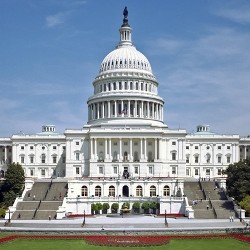Debunking Misconceptions About DFS Legislation

Before summer arrives, the daily fantasy sports (DFS) betting industry may become regulated in a number of states across the USA. A recent impetus to settle the issue has gained ground ahead of the various state assemblies beginning to turn their focus towards the pressing matter of the November elections. With all of the buzz surrounding what could be ahead for daily fantasy sports betting, it’s important to separate the fact from fiction, as much of what’s being said is either only half true or blatantly false all together.
Do Casinos Want to See DFS Banned?
Many people believe that all casinos are pushing lawmakers behind the scenes, and urging them to ban daily fantasy sports betting completely. This stems from a belief that sites such as FanDuel and DraftKings are regarded as unwelcome competition for brick-and-mortar casinos.
Although on the surface this assumption may make sense, when you examine the facts, it actually doesn’t seem that casinos are fighting all that hard to have an outright ban implemented on the industry. In fact, most laws that are currently being debated by the various states wouldn’t put an end to the activities of FanDuel or DraftKings across the US. In fact, they would actually benefit the sites by allowing them to establish a monopoly. It’s more likely that commercial land-based casinos are actually hoping to benefit from regulated daily fantasy sports betting perhaps by partnering with the sites, or by launching their own competing sites. Some tribal casinos, however, are actively fighting for a ban on daily fantasy sports betting, most notably in Arizona and Oklahoma.
Are States Only Interested in DFS as a Tax Revenue Source?
Many of those people who’d like to see the DFS betting industry remain unregulated and readily available have criticized state lawmakers for only proceeding with legislation in order to secure an extra source of tax revenues.
At the current time, no tax money is being paid to state governments by FanDuel and DraftKings, but even if regulations were to be enacted, it’s doubtful that revenues would exceed six figures in most states. In other words, states couldn’t hope to see much by way of extra money for their coffers by taxing daily fantasy sports betting sites in exchange for allowing them to operate in the state.
To further debunk this myth, you only need to look at the laws themselves as in many cases the various states are only contemplating requiring DFS betting sites to pay upfront fees for licensing, with no taxes regimes proposed. For example, Indiana and Virginia recently passed laws to impose a modest $50,000 licensing fee for DFS operators.
Consumer Protection a Driving Force
So if the states aren’t being motivated by money or pressure from commercial casinos, what’s driving them? In some cases, the move to regulate stems from a desire to show that lawmakers want to protect the public. The controversy that occurred last year with employees placing bets on competitor websites has given websites a bad name and caused a public outcry, leading lawmakers to respond.
Meanwhile, many DFS operators are actively lobbying to have their industry regulated in the US as they see legitimization as a favorable outcome for their businesses.
Congressional Hearing on May 11th
Against this backdrop, a Congressional subcommittee, the Subcommittee on Commerce, Manufacturing, and Trade, is expected to hold a public discussion concerning the DFS industry on May 11th. Up until now DFS betting, which is a form of online gambling, has been allowed under federal law due to an exemption included in the UIGEA. Nevertheless, 13 US states have still gone ahead and banned DFS sites from their jurisdictions, and without some form of clear federal legislation in place it is feared that more and more US states may feel compelled to ban the game. The issue present many challenges for Congress, though, as online gambling legislators find it difficult keeping up with the fast pace of developments within the technologically driven industry.
Whether the government likes it or not, however, online gambling is here to stay in the US. In the meantime, one prominent figure championing the push for legalized online gambling on a federal scale is New Jersey Gov. Chris Christie, who in addition to DFS betting would also like to see online bookmakers operating in his state. Christie sees regulation as a lucrative way of plugging the gaps in his state budget, while also creating much needed jobs in New Jersey.










